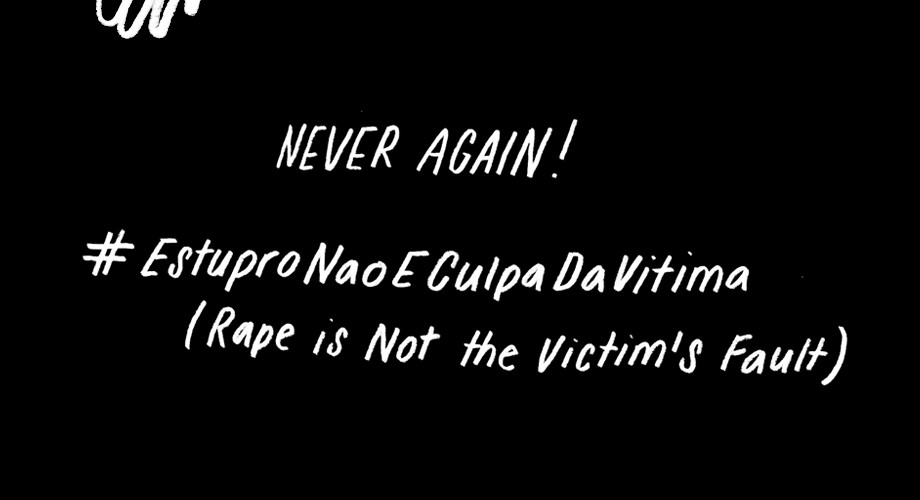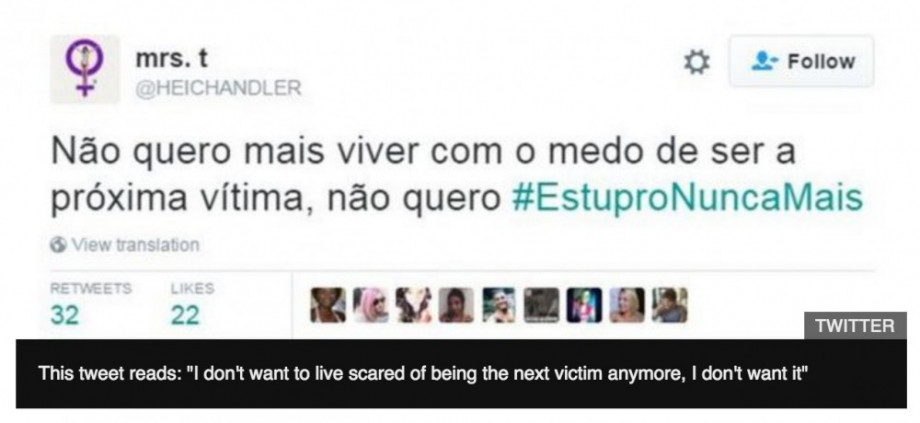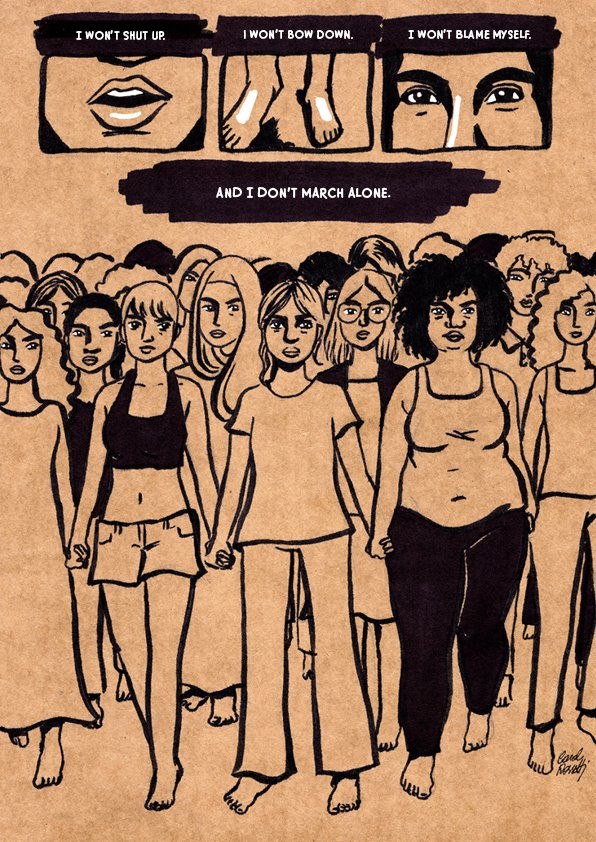In the Blog
Never Again Again

Illustration by Erin McPhee
Content warning: this post discusses sexual violence. This platform intends to create safe spaces, so we want people to engage with the subject matter without unintentionally exposing you to anything that could be triggering or painful.
Rage, anger and indignation have flooded social media in Brazil in the aftermath of one crime that shocked us to the core. 33 men raped a 16-year old in Rio de Janeiro, Brazil, and shared their crime on social media. Indignation not only because it was a horrendous crime, but only a few days before another girl had been raped in Piaui, a North-eastern state in Brazil, by 5 men repeating an all too real pattern of violence for Brazilian women and girls.
As feminists and allies protest the heinous crime, the impunity of sexual violence in the country, and the increasingly difficulties in accessing sexual and reproductive health rights services (as I mentioned in my last piece), others try to subtly legitimise or minimise these crimes, which is why it’s called a “rape culture”. Major news outlets call the crime “alleged crime”, but definitely called the victim a social drug user, a “favela” goer and a teenage mom. These media outlets also hinted that she had cheated on her boyfriend and he did what he did as some sort of revenge. As if any of those things can be used as justification for this brutal crime. The media is doing the work for the rapists and justifying their actions, while the victim, as usual, is left to justify her “honour”.
No wonder so few people report their sexual crime cases, with high levels of impunity and even higher levels of re-victimisation, we have seen over and over again that survivors do so despite our institutions and not because of them. Survivors are left, trying to build themselves up, having their bodies and dignities violated, their morals questioned and their rights denied.

Twitter image via BBC News
Violence is a tool to shut women down from political spaces, from speaking up, to make us conform to be some sort of submissive stereotype instead of complex human beings with emotions and opinions. Rape is never about sex; it is always about power and dominance. It’s about breaking someone and making them feel weak, so the perpetrator can feel powerful. So, there is NEVER a justification for rape and it is staggering that this still needs to be said.
Thousands of women and allies have taken to the streets to say “Never Again!”, but politicians don’t seem to care enough. One of the first official civil society meetings that the newly appointed Minister of Education (for the current transitional government) had was with an actor named Alexandre Frota, who professed to having raped a woman in a national TV show interview. His request was that politics and sex education were kept out of schools. Strange timing since the transitional government is facing a lot of corruption charges and recent recordings have shown that the President Dilma’s impeachment was a political manoeuvre to stop a widely-known corruption investigation. And, Mr. Frota himself is a well-known supporter of the impeachment process and a former porn actor.

Illustration by Carol Rosetti via Facebook : https://www.facebook.com/carolrossettidesign/ (www.carolrossetti.com.br)
There are many vectors for this current systemic violence: impunity, objectification of women in the media, not enough female political representation, and mostly because we live in a society that does not acknowledge women’s rights as human rights, but privileges or morality issues.
After being taken to the hospital with serious injuries, the young victim from Piaui didn’t survive her assault. The young girl from Rio has survived, and keeps surviving her morals being questioned by anonymous faces online and well-known faces in the media and having her rights systematically violated. Even though the crime was recorded and several men have confessed, the police commissioner still insists “there is not significant evidence to prove this crime”. With that we wonder, what will it take for our society truly say “Never again” to sexual violence.



